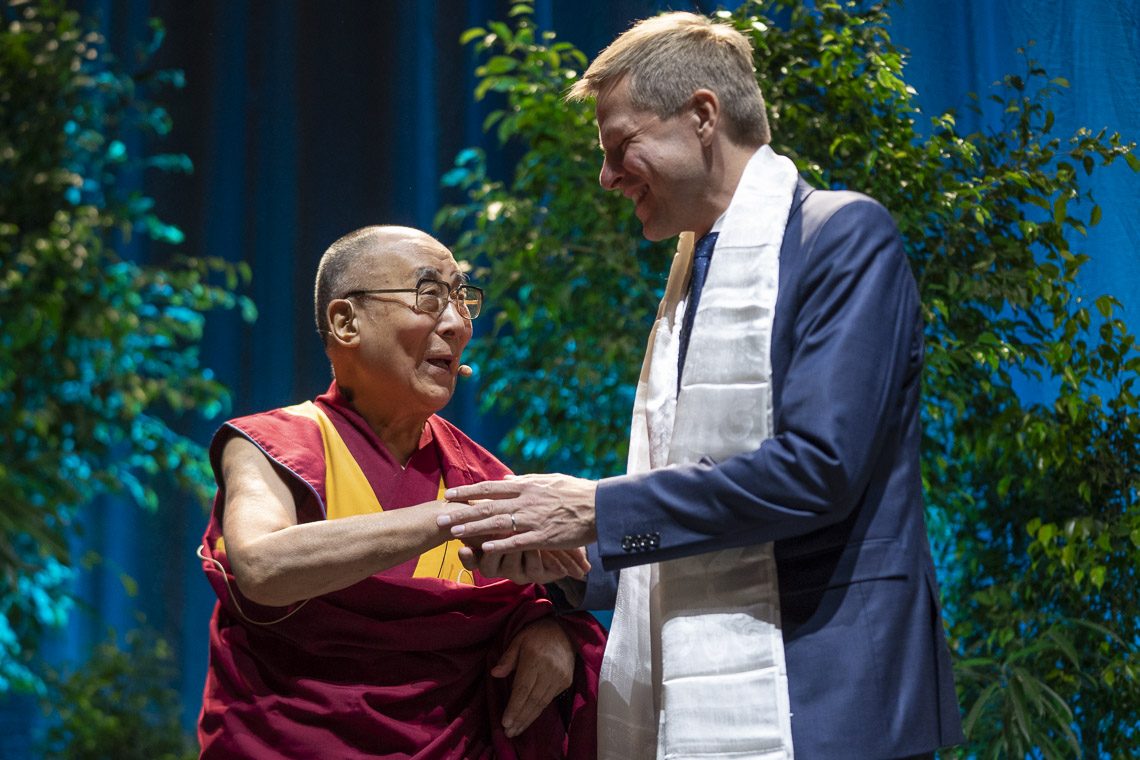
Photo: OHHDL
His Holiness the Dalai Lama visited the far-flung European countries of Lithuania and Latvia earlier this week, where he met several political dignitaries and supporters of the Tibet cause. His teachings centred around the topic of human values in education, The Art of Happiness, Tsongkhapa’s In Praise of Dependent Origination, the Diamond Cutter Sutra and Manjushree Empowerment. Furthermore, he also delved into politics and philosophy.
Addressing the crowd in Lithuania’s Siemens Arena, His Holiness spoke of how compassion and empathy can address bigger, universal issues of violence and discrimination. He stated that, “Too much emphasis on ‘us and they’ are the source of all problems. Yes, on secondary levels, we have differences in nationality, religious faith, family backgrounds, educated, less educated but fundamentally all seven billion human beings want a happy life. That’s our right.” He continued by addressing moral values, and how kindness can be promoted by supporting the rise of women’s leadership around the world. The talk, which was organised by an NGO based in Vilnius called House of Tibet, was attended by 2,500 people, some of whom brought along Tibet’s national flag.

His Holiness with Mayor of Vilnius Remigiuus Simasius for introducing his talk
Photo: OHHDL
Later that week, His Holiness conducted a three-day teaching in Riga, Latvia. He was welcomed by eight members of the Lithuanian Parliamentary Tibet Group and numerous supporters outside his hotel. He addressed the concerns surrounding the preservation of Tibetan culture and expounded on the difference between political and cultural boundaries. He said, “Political boundaries are the creation of bureaucrats, which may or may not reflect cultural boundaries. Historically the Chinese empire was characterised by political power, the Mongolian empire by its military prowess and the Tibetan empire by its spiritual strength.” In making this distinction he explained that, “a map reflecting the extent of Tibetan Buddhist culture would be much larger than a political map of Tibet,’ as spirituality can spread across political boundaries. Thus Buddhist values and principles of compassion and love are universal.”

His Holiness greeting the audience in Riga
Photo: OHHDL
During the final day of his teachings in Riga, he reaffirmed his commitment to the Middle Way Approach, which states that Tibet will not seek independence, but remain a part of People’s Republic of China. He urged the Tibetan community around the world to combine their sense of ethnic pride with the ideal of universal compassion, and encouraged the youth to pursue modern education so that one day, they can give back to their homeland.




 Print
Print Email
Email